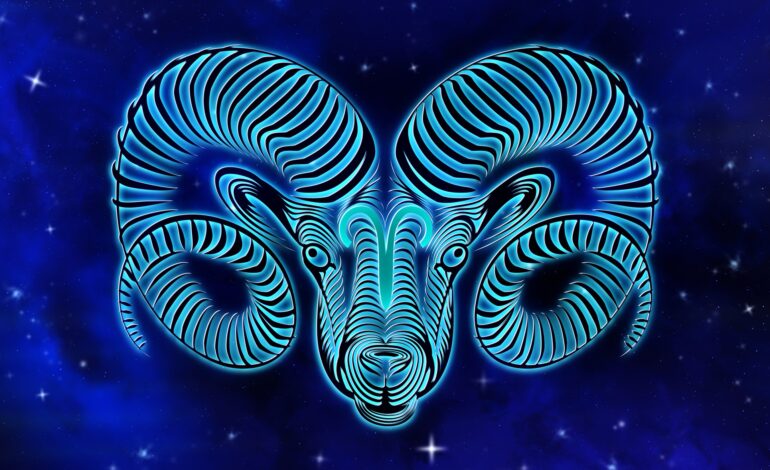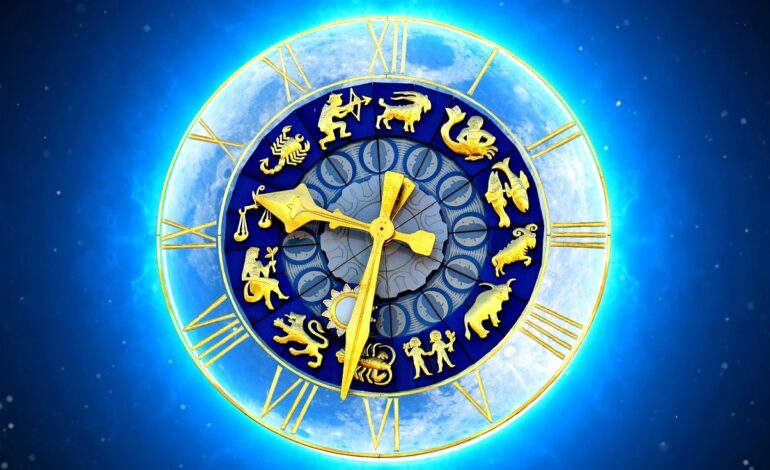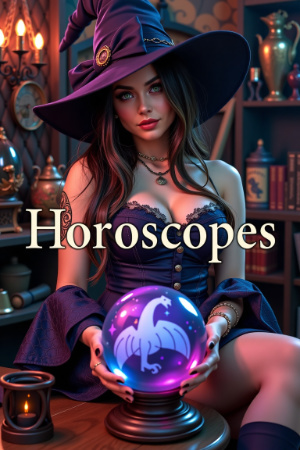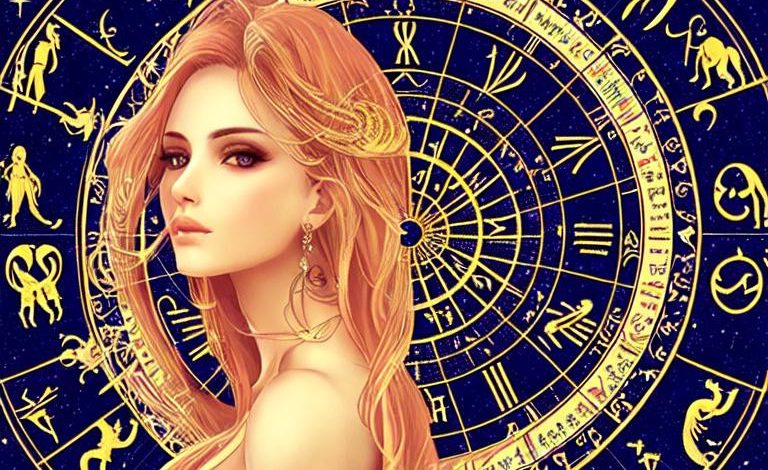
Astrology is an ancient practice that has been studied for centuries. It is a form of divination that uses the positions and movements of celestial bodies to gain insight into human affairs and natural phenomena. Astrology is often associated with witchcraft, magic, and the supernatural, making it a fascinating and mysterious topic for many people.
At its core, astrology is based on the idea that the positions of the planets and stars at the time of a person’s birth can provide insight into their character, personality, and future. This is known as a birth chart or a natal chart, which is a map of the positions of the planets at the moment of someone’s birth.
Astrology is divided into twelve zodiac signs, each of which is associated with specific personality traits and characteristics. These signs are Aries, Taurus, Gemini, Cancer, Leo, Virgo, Libra, Scorpio, Sagittarius, Capricorn, Aquarius, and Pisces. The zodiac signs are based on the position of the sun in relation to the stars, and each sign has its own unique qualities and traits.
In addition to the zodiac signs, astrology also uses other celestial bodies, including the moon, planets, and asteroids. Each of these bodies has its own influence on human affairs and can provide insight into different aspects of a person’s life.
One of the most important concepts in astrology is that of aspects. Aspects are the angles formed between the planets and other celestial bodies in a birth chart. These angles can be harmonious or challenging, and they can provide insight into the relationships between different areas of a person’s life.
Astrology is often associated with magic and witchcraft because of its emphasis on the supernatural and its use of symbols and archetypes. The zodiac signs and other astrological symbols are often used in magic spells and rituals to harness their energy and power.
One of the most fascinating aspects of astrology is its ability to predict future events. Astrologers use a variety of techniques to make predictions, including transits, progressions, and synastry. Transits involve the movement of planets in relation to a person’s birth chart, while progressions use the movement of the sun and moon to track changes in a person’s life over time. Synastry is the comparison of two birth charts to gain insight into the dynamics of a relationship.
Another important aspect of astrology is its use in understanding the natural world. Astrology can be used to predict natural phenomena such as weather patterns and earthquakes, as well as to gain insight into the cycles of the moon and other celestial bodies.
While astrology is often associated with the supernatural and the occult, it is also a highly scientific practice that requires a deep understanding of astronomy, mathematics, and physics. Astrologers must be skilled at interpreting complex charts and understanding the relationships between different celestial bodies.
Despite its scientific basis, astrology remains a highly controversial and divisive topic. Skeptics argue that there is no scientific evidence to support astrology’s claims, while believers point to the many instances in which astrological predictions have come true.
Whether you believe in astrology or not, there is no denying that it has played an important role in human history. Astrology has been used to guide decision-making, predict the future, and gain insight into the human psyche for centuries, and its influence can still be felt today.
If you are interested in learning more about astrology, there are many resources available to help you get started. You can find books, websites, and classes that can teach you the basics of astrology and help you understand how to interpret birth charts and make predictions.
Whether you are a believer or a skeptic, there is no denying that astrology is a fascinating and mysterious practice that continues to captivate and intrigue people around the world. So why not your exploration of astrology and see what insights it can offer you?
One of the most interesting aspects of astrology is the way in which it can shed light on your own personality and character. By analyzing your birth chart, an astrologer can identify your strengths and weaknesses, your likes and dislikes, and your general approach to life. This can be incredibly useful for gaining self-awareness and understanding your own motivations and tendencies.
Astrology can also be helpful for gaining insight into your relationships with others. By comparing your birth chart to that of a friend or partner, you can identify areas of compatibility and potential conflicts. This can be especially useful for improving communication and understanding between you and your loved ones.
Another fascinating aspect of astrology is its use in understanding the cycles of time. Astrology is based on the movement of celestial bodies, which follow precise cycles and patterns. By studying these cycles, astrologers can predict major shifts and changes in the world around us. This can be helpful for making decisions about everything from investments to personal relationships.
Of course, like any form of divination, astrology is not without its skeptics and critics. Some people dismiss astrology as a form of superstition, while others argue that its claims are not supported by scientific evidence. However, many people find astrology to be a valuable tool for gaining insight into themselves and the world around them.
Whether you believe in astrology or not, it is clear that this ancient practice has had a profound impact on human history and culture. From the star maps of ancient Babylon to the horoscopes of modern magazines, astrology has been used to guide decision-making, predict the future, and gain insight into the human psyche for centuries.
If you are interested in exploring astrology further, there are many resources available to help you get started. You can find books, websites, and classes that can teach you the basics of astrology and help you understand how to interpret birth charts and make predictions. You can also connect with other astrology enthusiasts online or in person to discuss your experiences and insights.
Astrology is a fascinating and mysterious practice that has captured the imaginations of people around the world for centuries. Whether you are a believer or a skeptic, there is no denying the powerful insights that astrology can offer into the human psyche and the cycles of time. So why not explore this ancient practice for yourself and see what insights it can offer you?
The History of Astrology

The history of astrology dates back thousands of years, with its roots in ancient Babylonian astronomy. The Babylonians believed that the movements of the stars and planets were connected to events on Earth, and they used astrological charts to help them predict the future and make important decisions.
Over time, astrology spread to other cultures, including ancient Greece and Rome. In Greece, astrology was closely linked to philosophy, with thinkers such as Pythagoras and Plato exploring the connections between the movements of the stars and human behavior.
In the Roman Empire, astrology was used to guide everything from military campaigns to public policy. Emperors consulted astrologers to determine the best time to launch an attack or sign a treaty, and astrological charts were often displayed in public places to help people understand the movements of the stars.
As Christianity spread throughout Europe, astrology began to lose favor, with some religious leaders condemning it as a form of paganism. However, astrology continued to be practiced in secret, and it experienced a resurgence during the Renaissance, when thinkers such as Johannes Kepler and Galileo Galilei used astrological principles to develop their theories of astronomy.
In the 20th century, astrology became increasingly popular in the West, with many people turning to horoscopes and other astrological readings for guidance and insight. Today, astrology is practiced around the world, with different cultures developing their own unique forms of astrological tradition.
One of the key developments in the history of astrology was the invention of the horoscope. Horoscopes, which are based on a person’s birth date and time, provide a snapshot of the positions of the stars and planets at the moment of their birth. By interpreting these positions, astrologers can gain insight into a person’s personality, strengths, and weaknesses, as well as make predictions about their future.
Another important aspect of the history of astrology is the development of the zodiac. The zodiac is a circle of twelve constellations that the Sun appears to pass through over the course of a year. Each constellation is associated with a particular set of personality traits and characteristics, and astrologers use the zodiac to interpret the positions of the stars and planets.
While astrology has a long and rich history, it has also been the subject of criticism and skepticism. Some scientists and skeptics argue that astrology is not supported by scientific evidence and that its claims are based on superstition and pseudoscience. However, many people continue to find value in astrology as a tool for gaining self-awareness and understanding the world around them.
The Star Signs

The star signs, also known as the zodiac signs, have been studied and interpreted for centuries by astrologers around the world. Each sign is believed to have its own unique personality traits, characteristics, strengths, and weaknesses. Astrology enthusiasts use the positions of the planets and the stars at the time of a person’s birth to determine their sign and gain insight into their personality and future.
While some people dismiss astrology as superstition or pseudoscience, others find great value in using it as a tool for self-discovery, understanding relationships, and navigating life’s challenges. Whether you believe in astrology or not, there’s no denying the allure and fascination of exploring the mysteries of the stars and the planets, and uncovering the secrets of the human psyche. So, whether you’re a fiery Aries, an earthy Taurus, an airy Gemini, or a watery Pisces, there’s something enchanting about discovering the unique traits and quirks of your sign and embracing the magic of the universe.
Aries: As the first sign of the zodiac, Aries is known for their pioneering spirit and independent nature. They are natural leaders who are not afraid to take risks and blaze their own trail. Aries is ruled by Mars, the planet of action and energy, which fuels their fiery passion and drive. They are known for their competitive spirit and their love of adventure.
Taurus: Taurus is the second sign of the zodiac and is known for their grounded, practical nature. They are ruled by Venus, the planet of love and beauty, which gives them a deep appreciation for the finer things in life. Taurus is also known for their patience and persistence, and their ability to build and create lasting foundations. They are often seen as the steady and reliable force in any situation.
Gemini: As the third sign of the zodiac, Gemini is known for their quick wit, intelligence, and communication skills. They are ruled by Mercury, the planet of communication, which gives them a natural talent for connecting with others and expressing themselves. Gemini is also known for their love of variety and their restless nature. They thrive on change and are always seeking new experiences and ideas.
Cancer: Cancer is the fourth sign of the zodiac and is known for their sensitivity and nurturing nature. They are ruled by the Moon, which gives them a deep connection to their emotions and intuition. Cancer is also known for their strong family ties and their desire to create a sense of home and belonging. They are often seen as the caretakers and protectors of those they love.
Leo: As the fifth sign of the zodiac, Leo is known for their confident, bold nature. They are ruled by the Sun, which gives them a natural sense of warmth and charisma. Leo is also known for their love of attention and their desire to be in the spotlight. They are often seen as the natural leaders and performers in any situation.
Virgo: Virgo is the sixth sign of the zodiac and is known for their analytical, detail-oriented nature. They are ruled by Mercury, which gives them a sharp mind and a talent for problem-solving. Virgo is also known for their practicality and their desire for order and structure. They are often seen as the reliable and efficient organizers of any situation.
Libra: As the seventh sign of the zodiac, Libra is known for their love of beauty and harmony. They are ruled by Venus, which gives them a natural sense of style and a desire for balance and peace. Libra is also known for their social skills and their ability to connect with others on a deep level. They are often seen as the peacemakers and diplomats of any situation.
Scorpio: Scorpio is the eighth sign of the zodiac and is known for their intense, passionate nature. They are ruled by Pluto, which gives them a deep connection to their emotions and their desire for transformation and rebirth. Scorpio is also known for their loyalty and their ability to keep secrets. They are often seen as the powerful and mysterious force in any situation.
Sagittarius: As the ninth sign of the zodiac, Sagittarius is known for their adventurous, free-spirited nature. They are ruled by Jupiter, which gives them a love of exploration and a desire for growth and expansion. Sagittarius is also known for their optimism and their love of learning. They are often seen as the philosophers and travelers of any situation.
Capricorn: Capricorn is ruled by Saturn, the planet of discipline and responsibility, and it’s an earth sign, making them ambitious and practical individuals. People born under this sign are known for their determination, self-discipline, and reliability. They tend to be very disciplined and ambitious, always working towards their goals. Capricorns are known for being responsible and reliable, which makes them great leaders.
Aquarius: Aquarius is an air sign, which means that they are very intellectual and open-minded. They tend to be very independent and unconventional, always seeking out new experiences and ideas. Aquarians are known for being very friendly and humanitarian, always looking for ways to help others. However, Aquarians can also be very stubborn and aloof, which can make it difficult for them to form deep emotional connections with others. They can also be prone to unpredictable behavior, which can be confusing for those around them. It’s important for Aquarians to learn to balance their need for independence with their desire for connection and community.
Pisces: Pisces is a water sign, which means that they are very sensitive and intuitive. They tend to be very empathetic and compassionate, always looking for ways to connect with others on a deeper level. Pisceans are known for their creativity and imagination, often having a talent for the arts. However, Pisceans can also be very emotional and prone to self-doubt, which can make it difficult for them to assert themselves in certain situations. They can also be prone to escapism and fantasy, which can sometimes lead them to neglect their responsibilities. It’s important for Pisceans to find healthy outlets for their emotions and to learn to balance their dreamy nature with practicality and responsibility.
The Different Types of Astrology
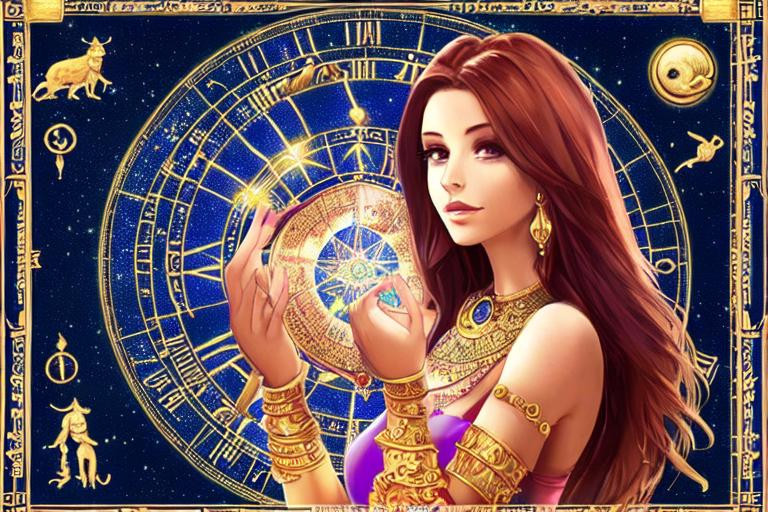
There are several different types of astrology, each with its own unique traditions, methods, and beliefs. Here are some of the most popular forms of astrology:
Western Astrology: Western astrology is the most widely practiced form of astrology in the Western world. It is based on the tropical zodiac, which divides the sky into twelve equal segments based on the position of the Sun at the spring equinox. Western astrologers use a birth chart, which shows the positions of the Sun, Moon, planets, and other celestial bodies at the moment of a person’s birth, to make predictions about their personality, relationships, and future.
Vedic Astrology: Vedic astrology, also known as Jyotish, is a form of astrology that originated in ancient India. It is based on the sidereal zodiac, which takes into account the actual positions of the stars and planets. Vedic astrologers use a birth chart, called a Janam Kundli, to make predictions about a person’s life, including their career, health, and relationships. Vedic astrology also includes a system of planetary periods, known as dashas, which are used to predict the timing of important events in a person’s life.
Chinese Astrology: Chinese astrology is based on a twelve-year cycle, with each year represented by an animal sign. The Chinese zodiac also includes elements such as wood, fire, earth, metal, and water, which are believed to influence a person’s personality and fortunes. Chinese astrologers use a birth chart, which takes into account a person’s birth year, month, day, and time, to make predictions about their future.
Tibetan Astrology: Tibetan astrology, also known as Mo, is a form of astrology that is practiced in Tibet, Mongolia, and other parts of Central Asia. It is based on a twelve-year cycle, with each year represented by an animal sign. Tibetan astrologers use a birth chart, which takes into account a person’s birth year, month, day, and time, to make predictions about their life.
Hellenistic Astrology: Hellenistic astrology is a form of astrology that originated in ancient Greece and was practiced in the Mediterranean region during the Hellenistic period. It is based on the tropical zodiac and includes techniques such as horary astrology, which is used to answer specific questions, and electional astrology, which is used to determine the best time for important events such as marriage or business deals.
Mayan Astrology: Mayan astrology is a form of astrology that was practiced by the ancient Mayan civilization in Central America. It is based on a thirteen-month lunar calendar and includes animal signs such as jaguar, monkey, and eagle. Mayan astrologers use a birth chart, which takes into account a person’s birth year, month, day, and time, to make predictions about their future.
Babylonian Astrology: Babylonian astrology is a form of astrology that originated in ancient Mesopotamia. It is based on the sidereal zodiac, which takes into account the actual positions of the stars and planets. Babylonian astrologers used a variety of techniques, including the observation of celestial omens and the interpretation of birth charts, to make predictions about the future.
Uranian Astrology: Uranian astrology, also known as the Hamburg School, is a form of astrology that was developed in Germany in the early 20th century. It is based on the idea that there are hypothetical planets beyond Saturn that influence human behavior. Uranian astrologers use a special set of astrological symbols and techniques, including the use of midpoints, to make predictions about a person’s life.
Medical Astrology: Medical astrology is a form of astrology that focuses on the connections between the movements of the stars and human health. Medical astrologers use a person’s birth chart to identify potential health problems and to suggest remedies based on the positions of the planets and other celestial bodies.
Esoteric Astrology: Esoteric astrology is a form of astrology that focuses on the spiritual and metaphysical aspects of astrology. It is based on the idea that the movements of the planets and stars reflect the evolution of human consciousness. Esoteric astrologers use a person’s birth chart to identify their spiritual path and to make predictions about their soul’s journey.
Sidereal Astrology: Sidereal astrology is a form of astrology that uses the sidereal zodiac, which takes into account the actual positions of the stars and planets. Sidereal astrologers believe that the tropical zodiac used in Western astrology has shifted over time and no longer accurately reflects the positions of the stars. Sidereal astrology is commonly used in Vedic astrology, as well as in some Western astrological traditions.
Celtic Astrology: Celtic astrology is a form of astrology that is based on the Celtic calendar, which is divided into 13 lunar months. Each lunar month is associated with a tree, and each tree is associated with certain personality traits and characteristics. Celtic astrologers use a person’s birth date to identify their tree sign and to make predictions about their personality and future.
Each of these forms of astrology has its own unique traditions and methods, and practitioners may specialize in one or more types of astrology. While there are some similarities between these forms of astrology, each offers its own perspective on the connections between the movements of the stars and human experience.
The Role of Astrologers

Astrologers play an important role in the world of astrology. They are the experts who interpret the positions of the stars and planets to provide insights into a person’s personality, relationships, and future. Here are some of the roles that astrologers play in the practice of astrology:
Providing Personalized Readings: One of the primary roles of astrologers is to provide personalized readings to clients. By analyzing a person’s birth chart and the positions of the stars and planets at the time of their birth, astrologers can offer insights into a person’s personality traits, strengths, weaknesses, and potential challenges. Astrologers may also make predictions about a person’s future based on their birth chart.
Offering Advice and Guidance: Astrologers also offer advice and guidance to clients based on their birth chart and astrological predictions. This advice may relate to relationships, career choices, and other important life decisions. Astrologers may also suggest specific actions that a person can take to enhance their life based on their astrological profile.
Conducting Research: Some astrologers focus on conducting research to better understand the connection between the movements of the planets and stars and human behavior. They may analyze historical data to identify patterns and correlations between celestial events and human events. This research can help astrologers refine their techniques and improve the accuracy of their predictions.
Teaching Astrology: Many astrologers also play a role in teaching others about astrology. They may offer classes or workshops to help people learn about the basics of astrology or more advanced techniques. They may also write books or create online courses to share their knowledge with a wider audience.
Promoting the Benefits of Astrology: Finally, astrologers play a role in promoting the benefits of astrology. They may write articles or give interviews to help people understand the value of astrology in their lives. They may also work to dispel common myths and misconceptions about astrology to help people make informed decisions about whether astrology is right for them.
Astrologers play an important role in the world of astrology. They provide personalized readings, offer advice and guidance, conduct research, teach others, and promote the benefits of astrology. Whether you are a believer in astrology or not, the role of astrologers is an important one in helping people better understand themselves and their place in the universe.
Astrology and the Occult
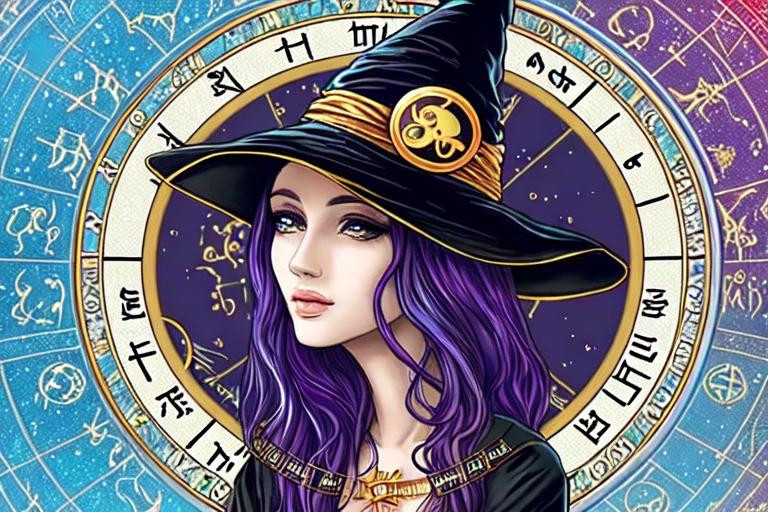
Astrology has long been associated with the occult, which refers to practices that are beyond the realm of mainstream science and knowledge. Here are some of the ways that astrology and the occult are connected:
Historical Roots: Astrology has a long history of being practiced alongside other forms of occultism, including alchemy, divination, and magic. In fact, in many ancient cultures, astrology was considered to be a central component of magical practices.
Esoteric Astrology: As mentioned earlier, esoteric astrology is a form of astrology that focuses on the spiritual and metaphysical aspects of astrology. Esoteric astrologers often draw on occult practices and principles, such as numerology and symbolism, to deepen their understanding of astrology.
Tarot and Astrology: Tarot cards and astrology are often used together in the practice of divination. Tarot cards are typically laid out in a spread that is based on astrological symbolism, with each card representing a different astrological sign or planet. Astrologers may use tarot cards to help them gain insights into a person’s life or to make predictions about their future.
Astrological Magic: Astrological magic is a form of magic that uses astrological symbolism and correspondences to enhance the effectiveness of spells and rituals. For example, an astrologer might use the planetary correspondences of a particular day to determine the best time to perform a ritual, or they might use the symbolism of a particular astrological sign to choose the best herbs or crystals for a spell.
Planetary Magick: Planetary magick is a form of magic that focuses specifically on the energies of the planets. Each planet is associated with different qualities and correspondences, and planetary magick uses these correspondences to tap into the energies of the planets and direct them towards specific outcomes.
Astrology and Hermeticism: Hermeticism is a philosophical and mystical tradition that originated in ancient Egypt and Greece. It is based on the idea that there is a hidden, esoteric knowledge that can be accessed through meditation, ritual, and other practices. Astrology has long been associated with Hermeticism, as both traditions focus on understanding the hidden connections between the physical and spiritual realms.
Astrology and the occult are closely connected, and many astrologers draw on occult practices and principles to deepen their understanding of astrology. Whether you believe in the power of astrology or not, it is clear that the practice of astrology has a long and rich history that is intertwined with other forms of esoteric knowledge and magical practices.
Find out which element is connected to your star sign.
Each of the 12 zodiac signs is associated with a particular element, which represents the fundamental qualities and characteristics of that sign. Understanding the elements can provide valuable insights into the nature of each sign and how it interacts with the world.
The first of the four elements is Fire, which is associated with the signs Aries, Leo, and Sagittarius. Fire signs are known for their passion, enthusiasm, and energy. They are often impulsive and spontaneous, and enjoy taking risks and pursuing new adventures. Fire signs are natural leaders and are known for their ability to inspire and motivate others.
The second element is Earth, which is associated with the signs Taurus, Virgo, and Capricorn. Earth signs are known for their practicality, groundedness, and reliability. They are often hardworking and focused on achieving their goals, and are skilled at creating stable foundations for themselves and others. Earth signs are also known for their connection to nature and their appreciation for the beauty and abundance of the physical world.
The third element is Air, which is associated with the signs Gemini, Libra, and Aquarius. Air signs are known for their intelligence, communication skills, and social grace. They are often interested in ideas and concepts, and enjoy exploring new perspectives and possibilities. Air signs are also known for their creativity and their ability to connect with others on a mental and intellectual level.
The fourth and final element is Water, which is associated with the signs Cancer, Scorpio, and Pisces. Water signs are known for their sensitivity, intuition, and emotional depth. They are often empathetic and compassionate, and are skilled at understanding the feelings and needs of others. Water signs are also known for their creativity and their ability to connect with their own emotions and inner world.
Understanding the elements can provide valuable insights into the nature of each sign and how it interacts with the world. By recognizing and working with the qualities of each element, we can develop a deeper understanding of ourselves and others, and use this knowledge to create more harmonious and fulfilling relationships and experiences.
The element for your sign.
FIRE: Aries, Leo, Sagittarius
WATER: Pisces, Cancer, Scorpio
AIR: Aquarius, Gemini, Libra
EARTH: Capricorn, Taurus, Virgo
The Planets
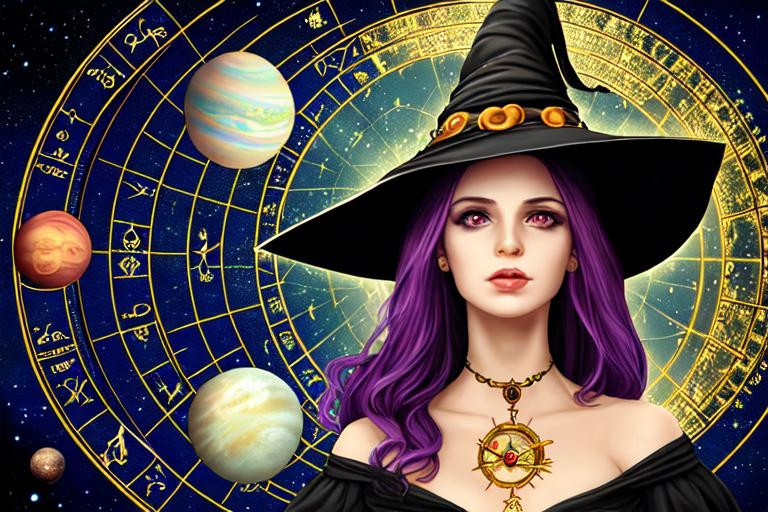
Welcome to the beginner’s guide to astrology and the planets! As witches, we know that the cosmos has a profound impact on our lives and the world around us. By exploring the planets and their energies, we can gain a deeper understanding of ourselves and the universe.
The planets in astrology represent different aspects of our psyche and experiences. Each planet has its own unique energy, which can affect us in various ways depending on their placement in our birth chart or in the current astrological transits.
Let’s start with the most well-known planet in astrology: the Sun. The Sun represents our core identity, our ego, and our life force. It is associated with creativity, self-expression, and vitality. When the Sun is prominent in our birth chart, we may be confident and outgoing, with a strong sense of self. When the Sun is in a challenging aspect, we may struggle with self-doubt or difficulty asserting ourselves.
Next up is the Moon, which represents our emotions, intuition, and nurturing nature. The Moon is associated with our innermost desires, needs, and fears. When the Moon is prominent in our birth chart, we may be sensitive, intuitive, and empathetic. When the Moon is in a challenging aspect, we may struggle with emotional instability or difficulty expressing our feelings.
Mercury is the planet of communication, intellect, and learning. It represents how we process information, communicate with others, and learn new things. When Mercury is prominent in our birth chart, we may be quick-witted and articulate, with a love for learning and intellectual pursuits. When Mercury is in a challenging aspect, we may struggle with communication or experience difficulty learning or processing information.
Venus is the planet of love, beauty, and pleasure. It represents our values, relationships, and desires for harmony and balance. When Venus is prominent in our birth chart, we may be charming, affectionate, and artistic. When Venus is in a challenging aspect, we may struggle with relationship issues or have difficulty finding pleasure or beauty in life.
Mars is the planet of energy, drive, and ambition. It represents our passions, desires, and ability to take action. When Mars is prominent in our birth chart, we may be assertive, ambitious, and competitive. When Mars is in a challenging aspect, we may struggle with anger, impulsiveness, or difficulty taking action.
Jupiter is the planet of expansion, growth, and opportunity. It represents our faith, optimism, and desire for abundance. When Jupiter is prominent in our birth chart, we may be generous, philosophical, and lucky. When Jupiter is in a challenging aspect, we may struggle with overindulgence, excess, or unrealistic expectations.
Saturn is the planet of structure, discipline, and responsibility. It represents our limitations, fears, and ability to commit to long-term goals. When Saturn is prominent in our birth chart, we may be disciplined, responsible, and hardworking. When Saturn is in a challenging aspect, we may struggle with self-doubt, fear, or difficulty taking risks.
Uranus is the planet of innovation, rebellion, and change. It represents our need for freedom, individuality, and unconventional thinking. When Uranus is prominent in our birth chart, we may be innovative, rebellious, and independent. When Uranus is in a challenging aspect, we may struggle with unpredictability or feel like we don’t fit in.
Lastly, Neptune is the planet of imagination, spirituality, and transcendence. It represents our connection to the divine, our intuition, and our ability to see beyond the physical world. When Neptune is prominent in our birth chart, we may be creative, intuitive, and spiritually inclined. When Neptune is in a challenging aspect, we may struggle with confusion or feel lost in a dream world.
By understanding the energies of each planet, we can begin to explore how they interact with each other and with our own birth chart. For example, a person with a prominent Mars in their birth chart may find that they have a strong drive to achieve their goals, but if Mars is in a challenging aspect with Saturn, they may struggle with frustration or difficulty in taking action.
It’s important to note that the planets themselves are not responsible for our experiences or actions, but rather they provide a framework for understanding the energies that are present in our lives. By working with these energies, we can harness their potential and use them to create positive change in ourselves and in the world.
One way to begin exploring the energies of the planets is to track their movements through the zodiac. As the planets move through the different signs, they bring their unique energies to different areas of our lives. For example, when Mars is in Aries, we may feel a surge of energy and motivation to take action, while when Venus is in Taurus, we may feel a deep appreciation for beauty and pleasure.
Another way to work with the energies of the planets is through ritual and magic. Each planet has its own correspondences, such as colors, herbs, and stones, that can be used to amplify their energies. For example, using red candles and garnet crystals can help to harness the energy of Mars, while using green candles and rose quartz can help to amplify the energy of Venus.
As with all forms of magic, it’s important to approach astrology with respect and reverence. The planets and their energies are powerful forces that should be used with intention and care. By cultivating a deeper understanding of astrology and the planets, we can connect more deeply with the cosmos and with ourselves, and use this knowledge to create positive change in our lives and in the world.
To read about your personal star sign click here
The Ruling Planet for your sign.
ARIES: Ruling Planet, Mars
TAURUS: Ruling Planet, Venus
GEMINI: Ruling Planet, Mercury
CANCER: Ruling Planet, Moon
LEO: Ruling Planet, Sun
VIRGO: Ruling Planet, Mercury
LIBRA: Ruling Planet, Venus
SCORPIO: Ruling Planet, Pluto
SAGITTARIUS: Ruling Planet, Jupiter
CAPRICORN: Ruling Planet, Saturn
AQUARIUS: Ruling Planet, Uranus
PISCES: Ruling Planet, Neptune
Final musings
As we conclude this journey through the mystical universe of astrology, I invite you to continue exploring the power and magic of the stars and planets. Whether you are a seasoned astrologer or a curious novice, there is always more to discover and learn.
Remember that astrology is not just about predicting the future or understanding personality traits. It is a profound tool for self-reflection, growth, and connection with the universe. As witches, we understand the importance of honoring and working with the natural cycles and rhythms of the world around us, and astrology can help us do just that.
Through astrology, we can deepen our understanding of our own unique path in life and gain insight into the forces that shape our experiences. We can use this knowledge to align ourselves with the energies of the cosmos, to set intentions and work towards our goals, and to connect with our higher selves and the divine.
So I urge you to continue your exploration of astrology, to keep learning and growing, and to use this powerful tool to enhance your magic and deepen your connection to the universe. Remember, as witches, we have the power to create our own destiny and shape our own reality, and astrology is just one of the many ways we can tap into that power and manifest our desires.

